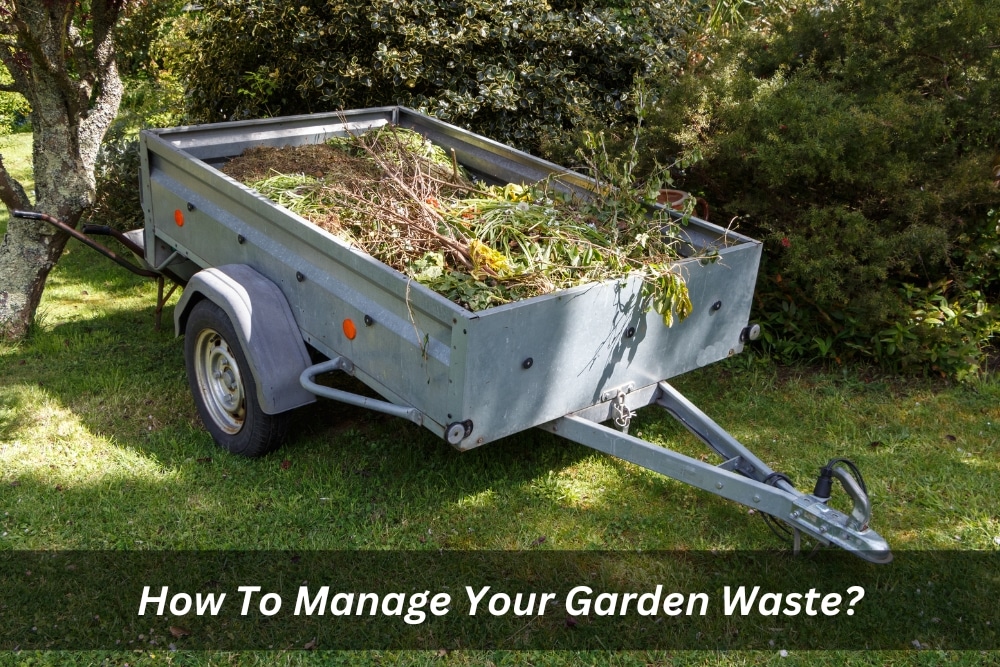Are you wondering how to recycle or manage your garden waste? If so, you’re in luck; there are many options available.
Garden waste poses a significant problem not just for households but also for the environment. As gardeners strive to make their gardens beautiful, they create more and more waste – from cut grass and hedge clippings to weeds and annual plants. Unfortunately, when this goes into landfills it creates massive amounts of methane gas and contributes to climate change. That is why there is a government policy about disposing of garden waste.
But all is not lost! There are actually many ways to properly recycle waste that helps us stay green. From composting to mulching, there are plenty of options for managing garden waste with minimal effort and cost. In this article, we’ll discuss in depth how to properly manage your garden waste and make use of those recycling tactics.
Composting is one of the most popular ways to manage waste in your garden. Composting involves breaking down organic matter such as leaves, grass clippings, and food scraps into a nutrient-rich soil amendment. This can be done in a compost bin or pile in your backyard. The process takes anywhere from two months to two years depending on the size of the compost pile and how often it is turned.
Composting is a great way to reduce the amount of waste going into landfills and provides you with nutrient-rich soil for your garden. Additionally, it can help reduce water usage in your garden as compost helps retain moisture in the ground.
Mulching is another great way to manage garden waste. Mulch is a layer of material such as wood chips, bark, or straw that is spread over the soil in your garden. It helps to reduce weeds, retain moisture, and keep the soil temperature consistent. Mulch also helps to break down organic matter such as leaves and grass clippings into a nutrient-rich soil amendment. If you want help mulching your garden, you can check this section.
Finally, you can also use garden waste for other purposes such as creating compost tea or using it as a natural fertilizer.
By following these tips, you can easily manage your waste and reduce the amount of waste going into landfills. Additionally, you’ll be able to create nutrient-rich soil amendments for your garden and help conserve water.
How do I safely dispose of non-biodegradable material from my garden?
Non-biodegradable materials such as plastic, glass, and metal can be difficult to dispose of in an environmentally friendly way. However, there are some steps you can take to safely dispose of these materials from your garden.
First, you should try to reduce the amount of non-biodegradable material that you use in your garden. This includes avoiding single-use plastics, using reusable containers, and opting for natural materials such as wood or stone.
Second, you can recycle any non-biodegradable material that you do use in your garden. Many local authorities have recycling centres where you can take these materials to be recycled. You can check this website to find one near you.
Finally, if the material is not recyclable, you should dispose of it responsibly by taking it to a hazardous waste disposal centre. This will ensure that the material is disposed of in an environmentally friendly way.
What can I do with large pieces of garden waste?
Large pieces of garden rubbish such as tree branches and logs can be difficult to manage. However, there are a few options for dealing with these materials.
One option is to use them as firewood. Firewood can be used for heating or cooking and is a great way to make use of large pieces of garden waste.
Another option is to use them in your garden as structural elements. Logs and branches can be used to create raised beds, borders, or even furniture.
By following these tips, you can easily manage large pieces of garden waste and turn them into something useful for your garden.
Are there any safety precautions to consider when managing my garden waste?
Yes, there are a few safety precautions to consider when managing your garden waste.
First, you should always wear protective gear such as gloves and safety glasses when handling sharp or hazardous materials.
Second, you should never burn garden waste as this can release harmful toxins into the air.
Finally, you should always be aware of any pests or diseases that may be present in your waste.
Following these safety precautions, you can ensure that your garden waste is managed safely and responsibly. Additionally, it’s important to remember to dispose of any hazardous materials in an appropriate manner.
How can I find a local compost collection centre?
Finding a local compost collection centre is an essential step in managing your garden waste responsibly. Many local authorities offer compost collection services, which can be found on your local council’s website.
Once you have located a compost collection centre, you should contact them to find out what materials they accept and any other relevant information. It is also important to check if there are any fees associated with using the service.
Once you have found a compost collection centre, you can start to compost your garden waste and help reduce the amount of waste sent to landfill.

